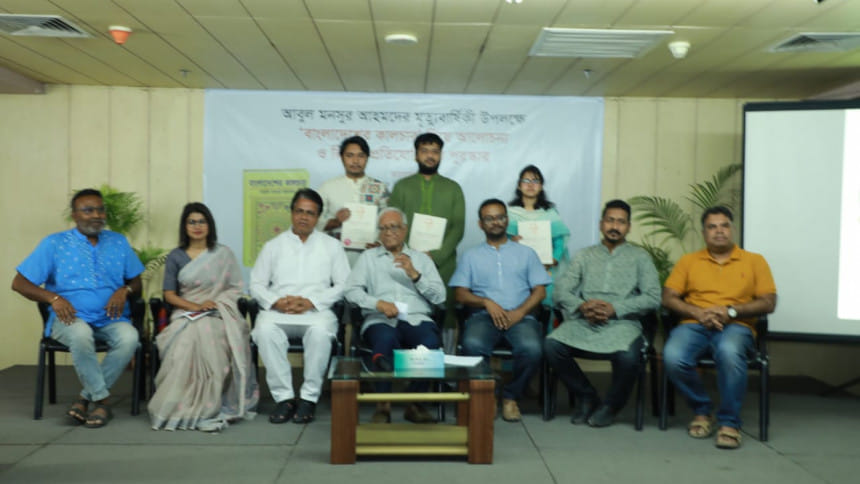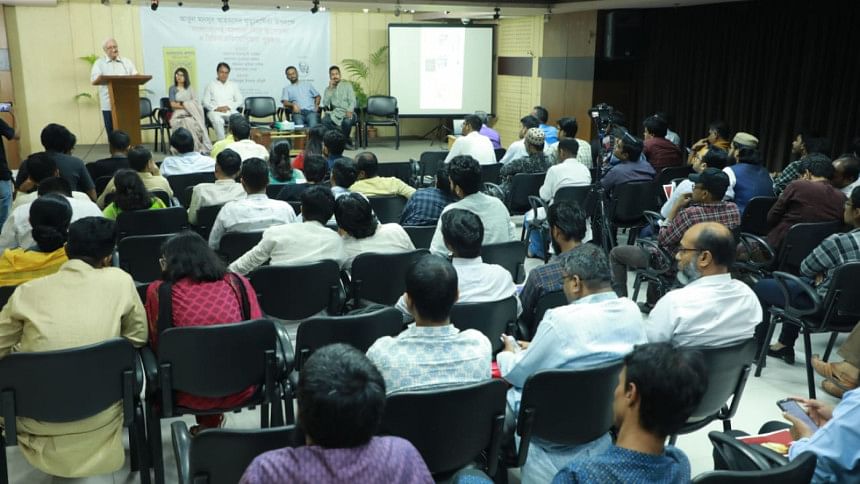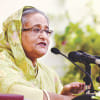Academics, book reviews commemorate Abul Mansur Ahmad

On the occasion of the author, politician, and journalist's death anniversary on March 18, the Abul Mansur Ahmad Smriti Parishad organised their annual book review competition for the book, Bangladesher Culture (Ahmed Publishing House, 1966), written by Abul Mansur Ahmad.
Sharing his experiences as a judge for the competition, the communication expert Khan Mohammad Rabiul Alam said, "While presenting their work, [participants] spoke about [the book] from different lenses: someone spoke about literary language, while someone else spoke about the concept of hegemony. As a judge, I felt very enriched hearing all of the discussions."
"This is a very composite book and it is a very milestone work which we need to read. We need to read this to know ourselves, which has become very important", he added. One of the best aspects of Abul Mansur Ahmad's writing is his ability to simplify things, he also noted, saying "the author [could] simplify complex ideas very well."
Speaking at the event, Mohammad Azam, Professor at Dhaka University in the Department of Bangla, stated, "Abul Mansoor Ahmad is one of our most important thinkers who thought for his people and worked for them. The fact that Abul Mansoor Ahmad lived through a variety of experiences is expressed in his thought-process as a writer, and this has elevated his writing and increased its effectiveness."
Poet and essayist Afroja Shoma, Professor at Noakhali Science and Technology University Dibyadyuti Sarkar, and Assistant Professor at Bangladesh Open University, Adnan Arif Salim, were also speakers at this event that was chaired by Serajul Islam Choudhury, Professor Emeritus at the University of Dhaka.
In her discussion, Afroja Shoma said, "Different writers and thinkers have tried to question and define their existence in various ways. Once something is written and published, it does not remain only the author's property. The actual owner of the text then is the reader, and we try to judge the text based on our own experiences."
She said, "While reading Bangladesher Culture over the past two days, what really excited me was the presence of an itinerary in terms of what socio-political context the author began his thought-process in and how the factors around him moulded it to give it its final form. The three main ideas discussed in the book are language, culture, and politics because, in the past, it has never been possible to separate the three of them from each other—they were intertwined. As a result, at the book's very core is politics, which is manifested through culture and expressed through language."

The winners of the competition were: Zobayer Ibne Kamal, who got the third position; Faiza Binte Huq who stood second; and Mostofa Mushfiq Talukder, who stood first.
In his speech concluding the event, Professor Serajul Islam Choudhury said, "Abul Mansoor Ahmad was able to distinctly use language. There is another element connected to culture and economics and that is social class. Social class and culture do affect each other. The language which Abul Mansoor Ahmad is trying to establish is not possible because of the difference in social classes."
He further said, "The work we need to do is research. While yes, hosting competitions in his memory is important, we also need to focus on research, which is crucial. And that research does not have to be confined to Abul Mansur Ahmed only, but can also be on his interests and the things he felt were important. If we do research, then we can definitely publish it and this will highlight the importance of his work. So, we can give out research scholarships or take our own research initiatives to study history. We also need to pursue literature too. Without the practice of literature and study of history, no civilization has progressed much. And literature and history are connected closely, and we need to establish this connection through our research."
The event took place on April 8, 2023 at The Daily Star Centre.
Hrishik Roy is an intern at Daily Star Books and a contributor at SHOUT. Reach out to him at [email protected].

 For all latest news, follow The Daily Star's Google News channel.
For all latest news, follow The Daily Star's Google News channel. 











Comments